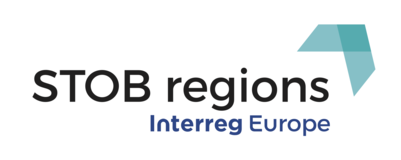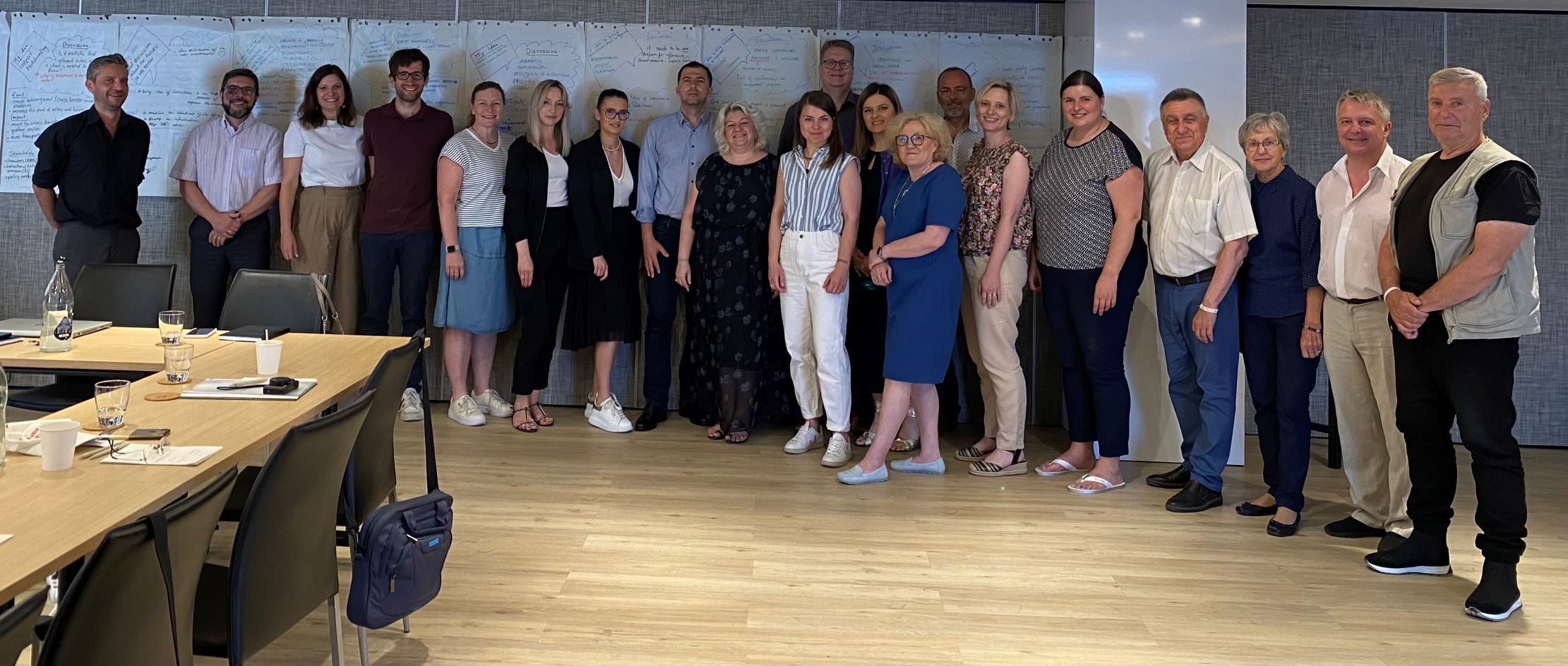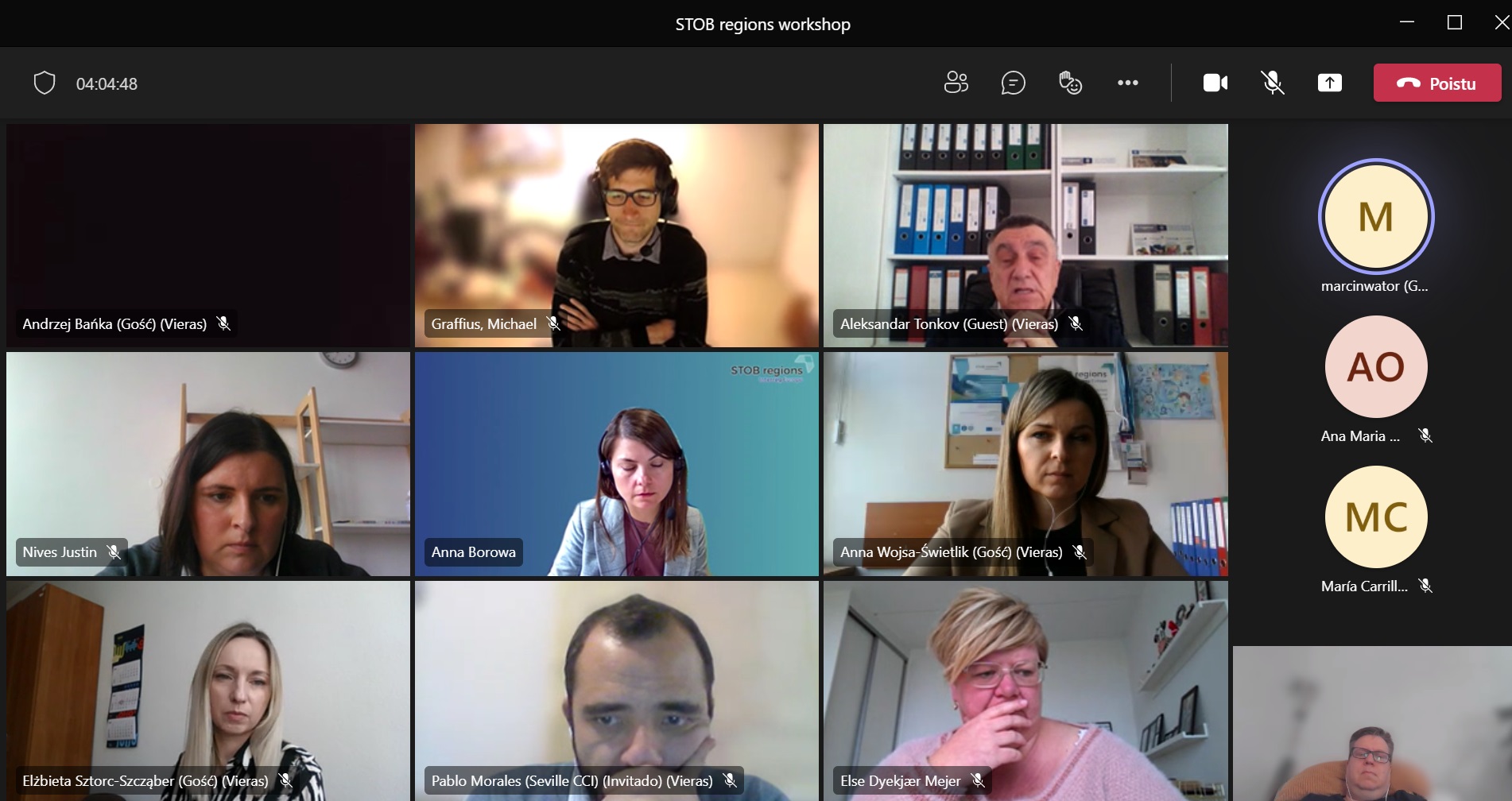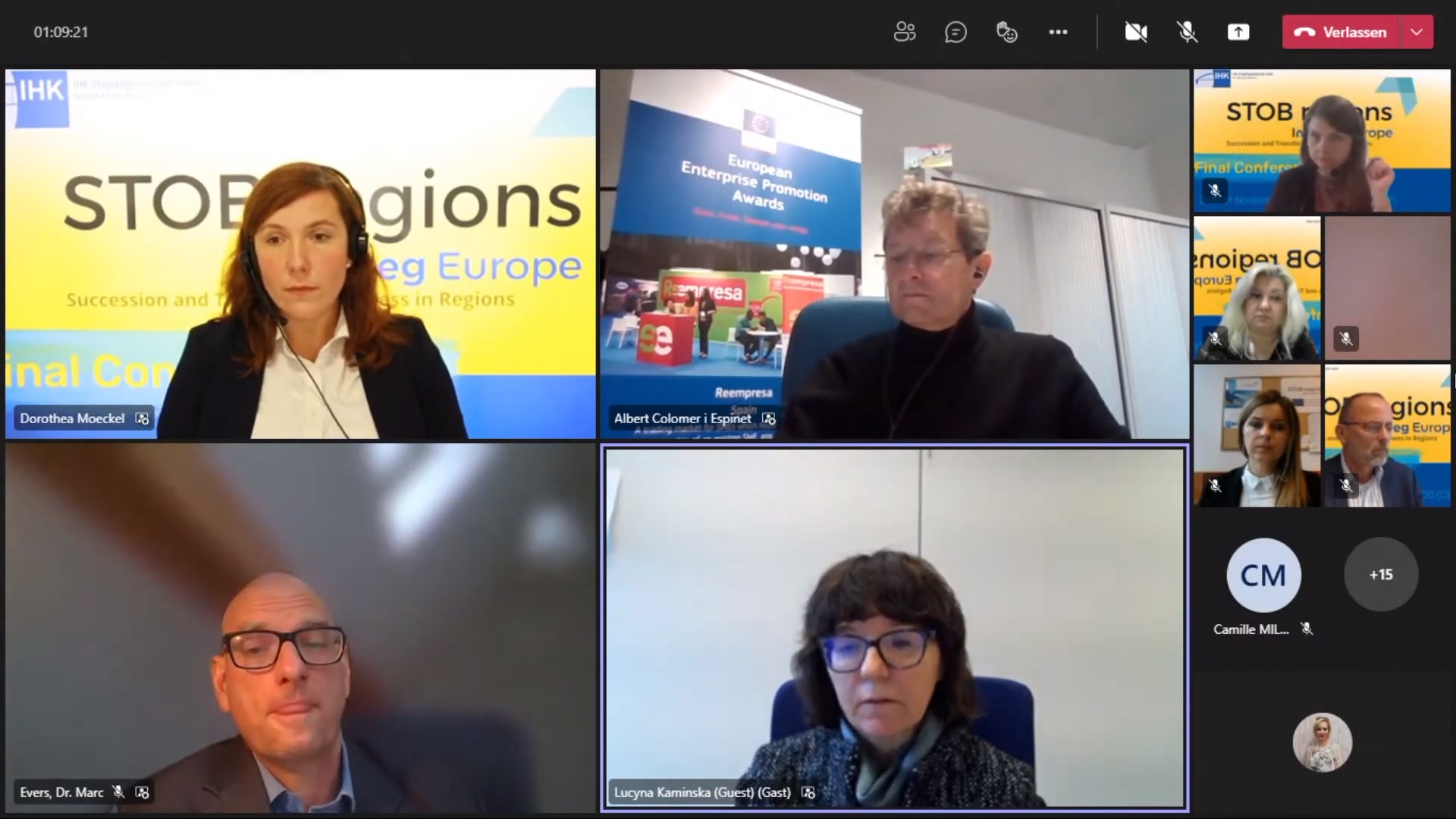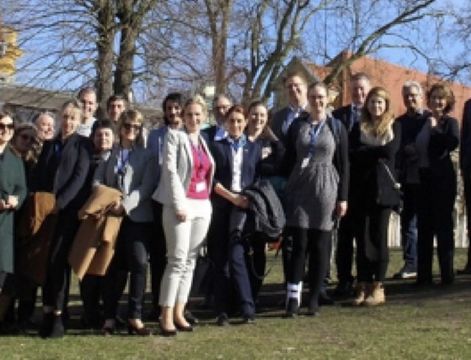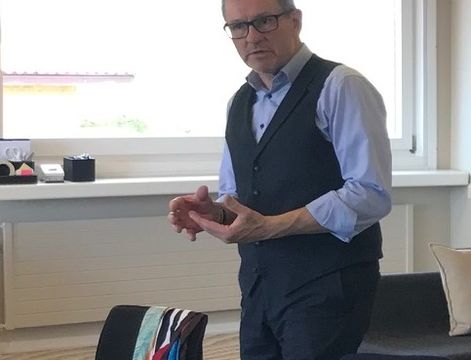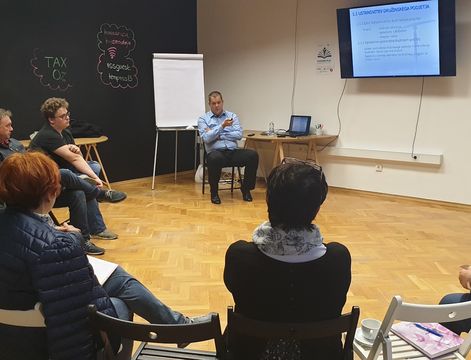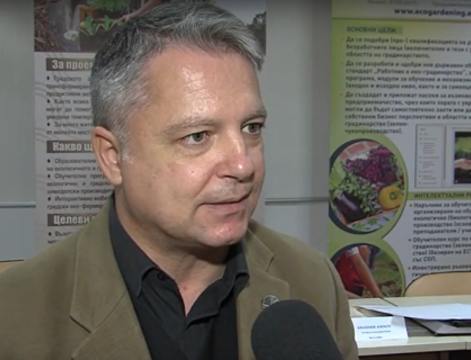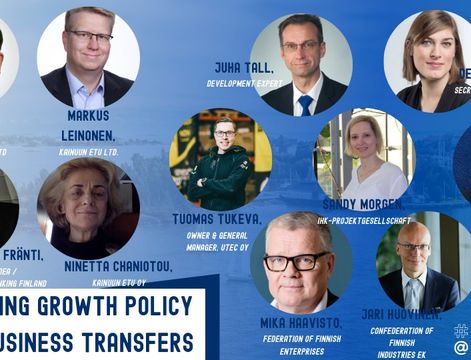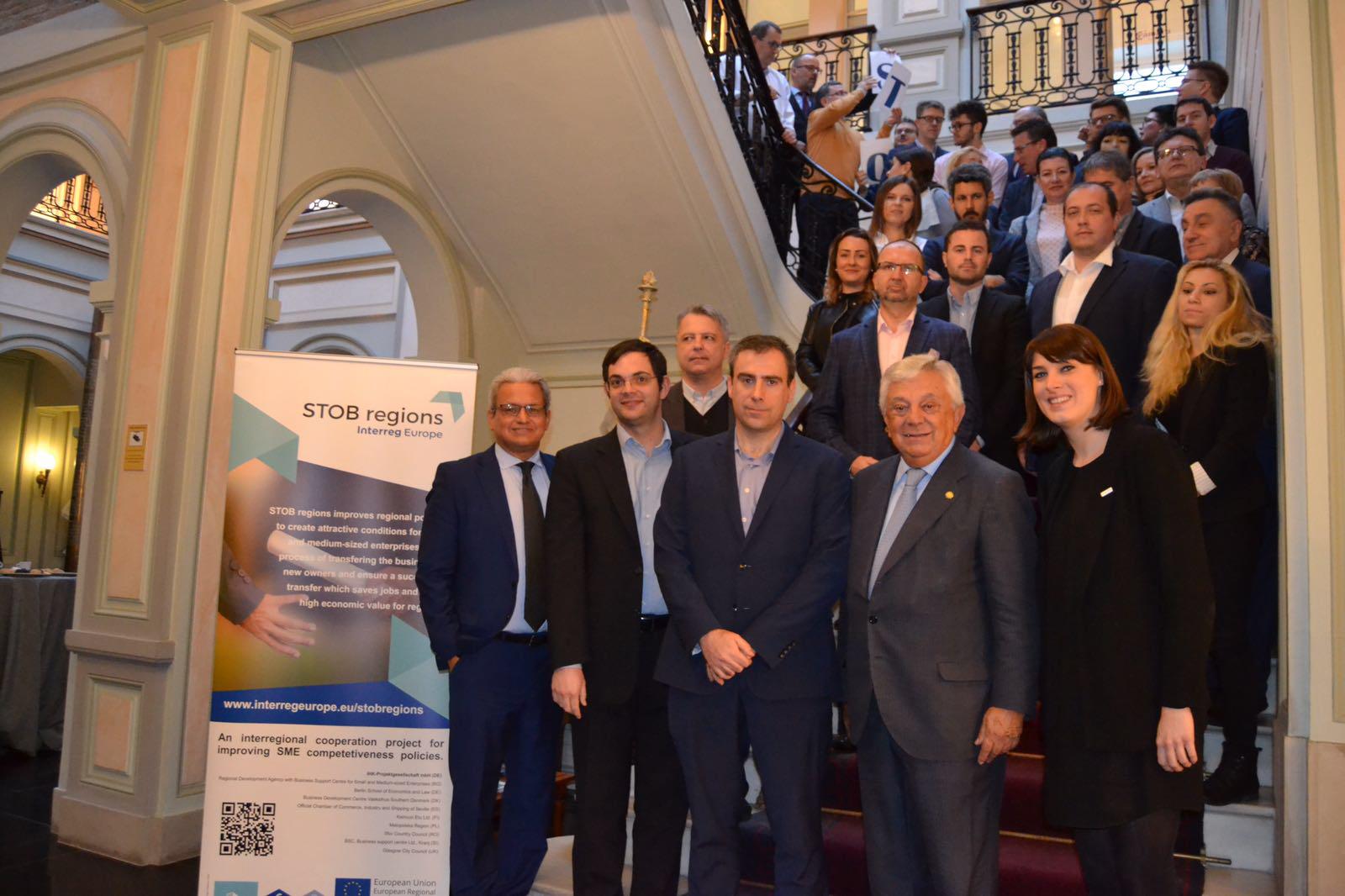The ninth Interregional policy learning workshop & peer review of the STOB regions project took place on 22nd and 23rd of May 2019, in Berlin, Germany and organized by project partner EMF Insititute, Berlin School of Economics and Law. The first day was dedicated to introducing the participants to the thematic workshop topic: Family Businesses.
 The workshop began with an introduction and welcome speech by Andreas Zaby, President of the University. Peter Wölffling, Managing Director of IHK-Projektgesellschaft mBH formally welcomed the partners and opened up the agenda of the first day; workshop on the thematic of Family Businesses.
The workshop began with an introduction and welcome speech by Andreas Zaby, President of the University. Peter Wölffling, Managing Director of IHK-Projektgesellschaft mBH formally welcomed the partners and opened up the agenda of the first day; workshop on the thematic of Family Businesses.
Professor Birgit Felden, Director of Institute for Entrepreneurship, German Mittelstand and Family Firms at the Berlin School of Economics and Law offered a thematic lecture entitled “The Hidden Backbone of German Industry” providing an introduction to Family firms in Germany in the context of succession.
A series of successful succession stories in the form of three thematic lectures followed with input from regional companies experienced in succession; Mr Jan Paul Bach of Bach resistor Ceramics Gmbh described the venture capital buyback in 2006, after which remained in full family control.The Birkholz family of M+R Filtermedien Gmbh explained the three year succession process and Christian Wolf of MP Gmbh Montage described the growth post succession. A panel discussion including the aforementioned succession cases was conducted, the first question posed to the panel: What are the most important differences between family and public businesses? The general response from the panel of the merits of family companies was the overwhelming nature of respect instilled in family firms, no obligation to share (financial) and the stronger desire to maintain, develop and nurture the company and personnel. The second question to the panel, What are the main challenges in the future for family businesses? The panel provided insight with the need for family businesses to plan the succession in a timely and realistic motion, transferors and indeed transferees must be prepared (inclusive of experience and education) and finally to make the proposition of succession an attractive possibility to ensure the continuity of family ownership.
STOB regions’ partners presented their contributions towards the thematic focusing on the topic from the perspective of their own region. Notable highlights of the presentations include: From Spain, the huge economic importance of family businesses were stressed (90% are classified as family business contributing 67% of total jobs, 57% of GDP and majority operating in the primary sector). Critical challenges encountered in Spain: professionalisation in SMEs and more adoption of family protocol. Mr. Dan Crivat of the Escrow Agency TradeX explained the dynamics of family businesses in Romania, and provided the key issues facing business transfer: the need for a one stop shop for BT support, increased awareness raising initiatives and an improved financial environment in the form of specific financing instruments for Business transfer. From Poland, 82% of family business owners anticipate a transfer to the next generation. The Polish Act on Succession Management and its implications was reiterated. The Danish Partner offered an example of the method of transferring business within the family via means of a holding company.
Day two began with an overview of the current status of RSS Guidebook (regional Succession Services), an additional output of the project aimed to consolidate all learnings and outputs from the STOB regions project partners. The aim of the second day was to concentrate on the formulation of each partners’ regional action plan, the advisory partner presented explained the agenda and goals of the session. The remainder of the day was allocated to the regions to present their preliminary action plan concept and proposals for action. Each partner was provided multilateral feedback through an interactive group discussion moderated by the advisory partner, to allow for improvement of the regional action plan and promote and identify additionality through interregional learning and exchange.
The remainder of the day was allocated to the regions to present their preliminary action plan concept and proposals for action. Each partner was provided multilateral feedback through an interactive group discussion moderated by the advisory partner, to allow for improvement of the regional action plan and promote and identify additionality through interregional learning and exchange.
The ninth and final workshop provided the project partners a deeper understanding of the business transfer process in the Berlin-Brandenburg region and explored in great detail the thematic of family businesses whilst developing new ideas and recommendations for policy learning and development of the regional action plans. The next partner meeting is to be held in September 2019, purposed as a final workshop to present and discuss the advanced-stage regional action plans, expected to be implemented during phase II of the project.
Presentations from the IPL meeting in Berlin, and previous meetings can be found through our successionwiki here.
To access STOB regions’ good practices relating to business transfer and succession please visit here.
